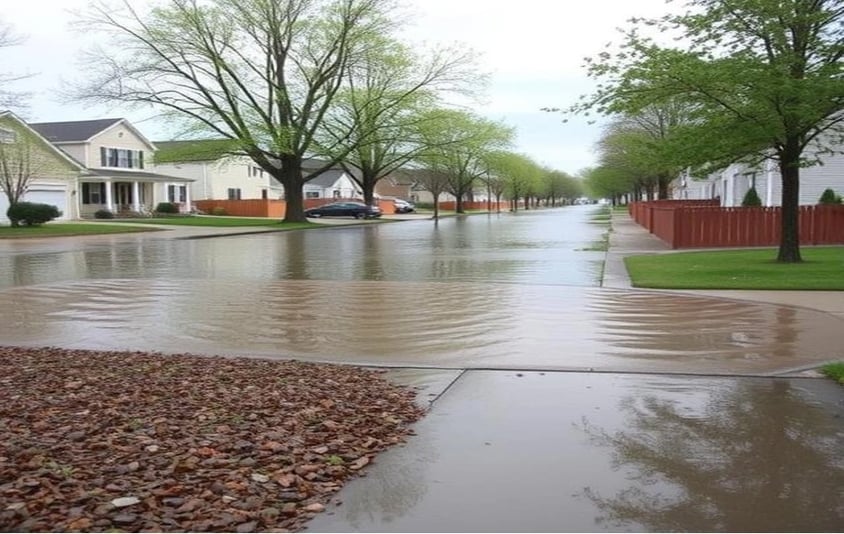Spring Brook Wins $250K in Property Damage Lawsuit Over Drainage

Table of Contents
Case Background
Spring Brook Terrace Association, Inc., a condominium association in Stamford, Connecticut, filed a lawsuit against Columbus Gardens of Stamford Inc. and several individual unit owners. The case centered around repeated flooding allegedly caused by drainage practices on the Columbus Gardens property, located at 15 Columbus Place. The Plaintiff claimed that negligent site modifications and poor maintenance led to ongoing property damage. Columbus Gardens was incorporated in 2024, though drainage issues reportedly predate this formal establishment.
Cause
The legal dispute stemmed from Columbus Gardens’ efforts to manage stormwater without proper planning. The Defendants installed a drainage pipe that redirected water toward the neighboring Spring Brook property. They also repaved a parking lot with a slope that directs runoff toward Spring Brook. A catch basin meant to collect runoff was not adequately maintained. Downspouts and sump pumps were added to Columbus Gardens to manage their own flooding, but they allegedly worsened flooding on Spring Brook’s land.
Injury
The Spring Brook Terrace Association alleged that the flooding has caused persistent damage. Each rainstorm led to new water intrusion. This eroded their stone wall, damaged landscaping, and flooded parts of their units. The Plaintiff also incurred engineering expenses to assess and counter the drainage issues. The repeated flooding was described as a nuisance and a continuing trespass, disrupting the use and enjoyment of their property.
Damages
The Plaintiff sought monetary damages to cover physical property damage, professional fees, and other expenses. They also requested attorney’s fees, court costs, and interest as permitted by law. Additionally, Spring Brook asked t
Continue Reading This Article
Subscribe to access this article and our entire library of legal content.